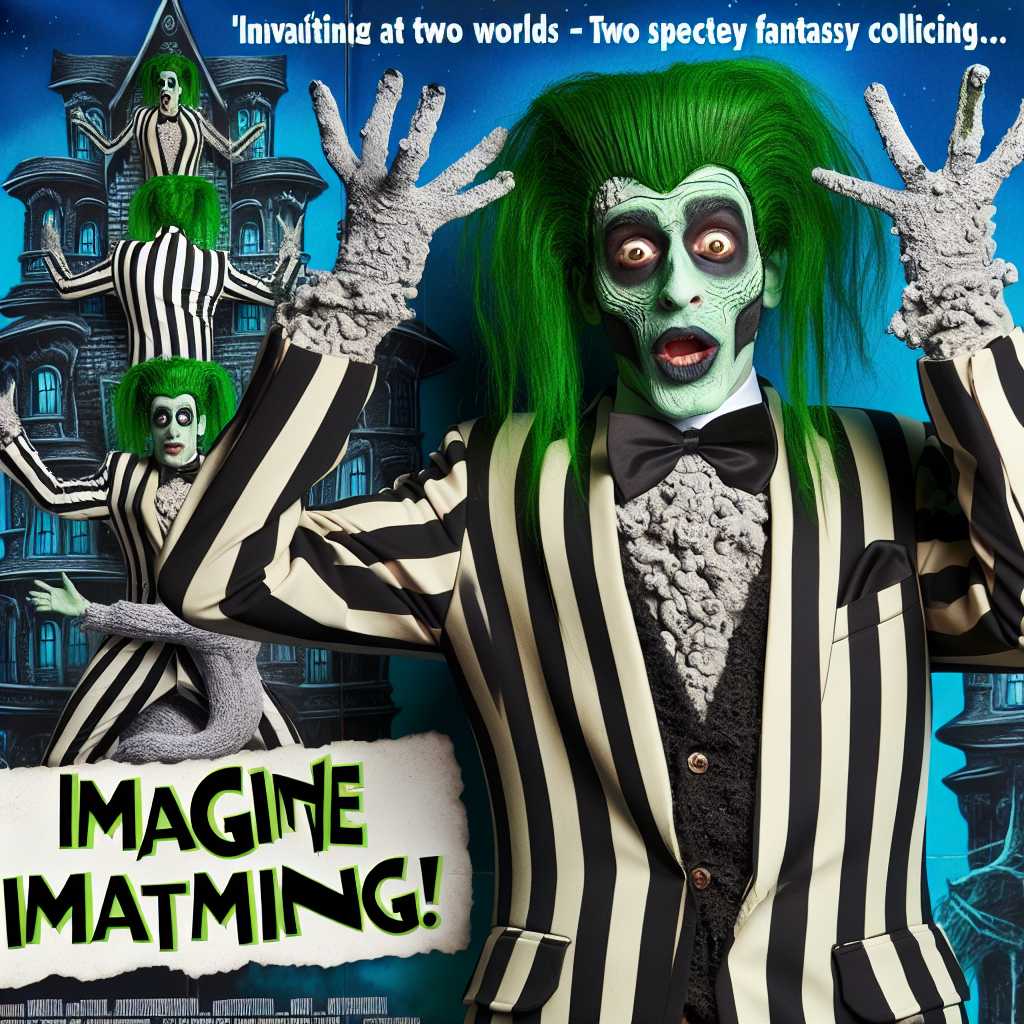The Enigmatic Charm of Beetlejuice: An Exploration of The Character and Film
Beetlejuice, the name itself conjures images of the mischievous and unconventional ghost from the eponymous 1988 film directed by Tim Burton. Since its release, the character of Beetlejuice and the film have become cultural icons, remembered for their unique blend of comedy, horror, and fantasy elements. This article delves into the creation of Beetlejuice, its significance in pop culture, and the continued impact it has on fans and media.
Creation of a Ghostly Icon: Beetlejuice’s Origin and Development
The brainchild behind Beetlejuice was first envisioned by producer David Geffen who then tasked Michael McDowell and Larry Wilson to write a screenplay. Directed by Tim Burton, who was fresh off the success of ‘Pee-wee’s Big Adventure,’ ‘Beetlejuice’ marked his foray into feature filmmaking that defied genre norms. Burton’s distinct gothic aesthetic meshed with cartoonish strangeness is evident throughout the film. A then relatively unknown Michael Keaton was cast in the titular role, bringing to life the green-haired, fast-talking character with a chaotic energy that left an indelible mark on viewers.
The Plot Thickens: A Brief Synopsis of Beetlejuice
The story follows Adam and Barbara Maitland, a charming couple who meet their untimely demise in an automobile accident. Trapped as ghosts in their quaint New England home, they find to their horror that it has been sold to the Deetz family. Frustrated with their own impotence to scare away the new inhabitants and desperate to reclaim their space, they inadvertently summon Betelgeuse (renamed Beetlejuice for the film), a freelance “bio-exorcist” from the netherworld.
What ensues is a comical yet macabre series of events as Beetlejuice wreaks unordered havoc trying to help but ultimately pursues his own chaotic agenda which includes marrying Lydia, the teenage daughter of the Deetz’s, in order to escape his limbo existence. Charmingly morbid with striking visuals, ‘Belejuice’ examines themes of life, death, and what lies between.
Cinematic Style and Impact: The Legacy of Beetlejuice in Film
Tim Burton’s distinctive visual style is a hallmark of ‘Beetlejuice.’ His use of saturated colors alongside contrasting black and white patterns creates a timeless gothic aesthetic that became synonymous with Burton’s directorial identity. The make-up, special effects, and stop-motion animation were pioneering for their time, contributing to the movie winning the Academy Award for Best Makeup.
The film played a pivotal role in pushing boundaries within the cinematic landscape at the time. Its success paved the way for Burton to helm other projects like ‘Batman’ (1989) and ‘Edward Scissorhands’ (1990), further establishing him as a mainstream filmmaker with an idiosyncratic vision.
Cultural Penetration: Beetlejuice in Popular Culture
Beetlejuice extended beyond the silver screen into animated television with ‘Beetlejuice: The Animated Series’, which ran for four seasons from 1989 to 1991. The character’s infamous catchphrase “It’s showtime!” along with merchandise such as action figures, Halloween costumes, and video games perpetuated Beetlejuice’s presence in pop culture.
Beyond merchandise, ‘Beetlejuice’ has been influential in various other media including theatre – with a stage musical adaptation opening on Broadway in 2019. It retained much of the film’s dark whimsy while reimagining elements for live performance.
Contemporary Relevance and Continuations: Beetlejuice Today
Return trips to the world of ‘Beetilejuice’ have often been discussed with fans eagerly anticipating news on a sequel. While no concrete developments had emerged for many years, periodically rekindled hopes point towards enduring affection for the character and antipation for more misadventures.
